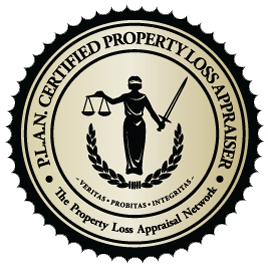Insurance Appraisal
Alternative Dispute Resolution
What is Insurance Appraisal?
Alternative Dispute Resolution
Depending on the state, Insurance Appraisal is intended to be a cost-effective and quicker way to resolve disputes with your Insurance Company. It attempts to avoid the need for attorneys and legal action/lawsuits.
How Does It Differ from Public Adjusting?
Unlike Public Adjusting, Insurance Appraisal does not determine what is covered by your Commercial
or Residential Insurance Policy, but rather it can settle disputes over the scope of the repairs, the cost
of those repairs, and sometimes what caused the damage.
Who Pays for an Insurance Appraisal?
Each party (you and your Insurance Carrier) is responsible to pay their own individual Appraiser.
Other expenses of the appraisal (ie., Umpire fees and other experts such as Engineers, Meteorologist, etc.) are to be split equally between both principal parties.
What Does It Cost?
Appraisers must charge either an hourly fee or a flat fee in order to maintain a disinterested
involvement. The exact cost is unknown and dependent on:
- how agreeable the other Appraiser will be.
- if other experts are needed.
- if the services of an Umpire are required.
When is Insurance Appraisal Appropriate?
While Insurance Appraisal can be an efficient and quicker way to settle valuation disputes, the
decision of whether or not to demand appraisal involves many legal and strategic nuances.
If your Insurer has demanded appraisal or you are considering demanding appraisal yourself, you
should speak with an expert such as a Public Insurance Adjuster or a Property Insurance Attorney to
determine if Insurance Appraisal is appropriate for you.
For your Insurance Claim to be ripe for Appraisal, the following is required:
- Your Insurance Carrier has to have opened coverage for your claim.
- You must be in compliance with your Duties After Loss.
- The dispute must be established between you and the Insurer.
- Your Insurance Company must have the appropriate time to investigate your claim.
NOTICE: You should never demand Insurance Appraisal without being in full compliance with your Duties After Loss (Post Loss Obligations) and officially retaining an Appraiser. You should never name anyone as your Appraiser without them agreeing to perform your appraisal and having officially retained them by signing their retainer agreement and paying their retainer.
Do You Need an Insurance Appraiser?
Jonathan Kaiser of New Hope Claims is a P.L.A.N. and IAUA-certified Appraiser
and provides service in multiple states in the Midwest. Let him assist in your disputed claims.

The Property Loss Appraisal Network (P.L.A.N.)
was created upon the principles and desires to maintain truth, honesty, and integrity within our industry with an emphasis on the professional and ethical conduct and behavior of those who serve within.

Insurance Appraiser & Umpire Association (IAUA)
has been formed to established and maintain the highest level of professional standards and services for the
purposes of protecting the rights of the insured and
insurers in the Appraisal process.
